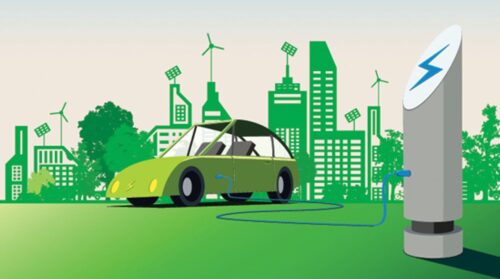The dawn of the 21st century has ushered in significant technological advancements, and among the most transformative innovations is the electric vehicle (EV). As cities grapple with congestion, pollution, and the urgent need for sustainable solutions, EVs are emerging as a pivotal force in reshaping the future of mobility. This blog post explores how electric vehicles are changing the way we travel, delving into their impact on the environment, advancements in technology, shifts in consumer behavior, and the broader implications for society.
The Rise of Electric Vehicles
Electric vehicles have been around for over a century, but they have gained remarkable momentum in recent years. Factors such as environmental awareness, government incentives, advancements in battery technology, and a growing array of available models have contributed to their surge in popularity. According to the International Energy Agency (IEA), global electric car sales reached a record high of 6.6 million units in 2021, a 108% increase from the previous year. This growth trajectory indicates that EVs are not just a trend; they represent a fundamental shift in how we view transportation.
Environmental Benefits
One of the most compelling reasons for the rise of electric vehicles is their potential to reduce greenhouse gas emissions. Traditional gasoline and diesel vehicles are major contributors to air pollution and climate change. EVs, on the other hand, produce zero tailpipe emissions, which is especially beneficial in urban areas where air quality is a significant concern.
Reducing Carbon Footprint
While it is essential to acknowledge that the production of electric vehicles and their batteries has an environmental impact, studies show that, over their lifecycle, EVs have a significantly lower carbon footprint compared to internal combustion engine (ICE) vehicles. According to a study by the Union of Concerned Scientists, electric cars produce less than half the emissions of comparable gasoline-powered vehicles, even when accounting for the emissions generated during electricity production.
Promoting Renewable Energy
The adoption of electric vehicles also encourages the use of renewable energy sources. As more EVs hit the road, there is a corresponding increase in demand for clean energy. Many EV owners are now opting for home solar panels, allowing them to charge their vehicles with renewable energy. This synergy between electric vehicles and renewable energy sources can significantly reduce overall emissions and promote energy independence.
Technological Advancements
Electric vehicles are not just about reducing emissions; they also represent a technological revolution. Innovations in battery technology, autonomous driving, and smart connectivity are fundamentally changing the driving experience.
Battery Technology
The heart of every electric vehicle is its battery, and advancements in battery technology have been nothing short of revolutionary. Lithium-ion batteries, which are currently the most common type used in EVs, have seen significant improvements in energy density, charging speed, and lifespan. Companies like Tesla and Panasonic are leading the charge in developing more efficient battery technologies, allowing electric vehicles to achieve longer ranges and shorter charging times.
For instance, the Tesla Model S can now travel over 370 miles on a single charge, while fast-charging technology allows drivers to replenish their battery in a matter of minutes. The development of solid-state batteries, which promise to offer even greater energy density and safety, is also on the horizon, potentially transforming the EV landscape even further.
Autonomous Driving
Another exciting advancement is the integration of autonomous driving technology in electric vehicles. Companies like Waymo, Tesla, and Uber are investing heavily in self-driving technology, which has the potential to revolutionize transportation. Autonomous vehicles could reduce accidents, improve traffic flow, and increase accessibility for individuals who cannot drive.
The synergy between electric and autonomous vehicles is evident; electric cars are often better suited for autonomous technology due to their advanced sensors and software systems. The future of mobility may very well involve fleets of autonomous electric vehicles, providing convenient and sustainable transportation solutions.
Smart Connectivity
In an increasingly digital world, smart connectivity is another essential aspect of modern electric vehicles. Many EVs now come equipped with advanced infotainment systems, allowing drivers to connect their smartphones and access navigation, music, and vehicle diagnostics seamlessly. Some electric vehicles even offer over-the-air updates, ensuring that drivers always have the latest software and features.
Furthermore, the integration of smart technology into EVs enables vehicle-to-grid (V2G) communication, allowing electric vehicles to return energy to the grid during peak demand. This capability not only helps stabilize the grid but also offers EV owners a potential source of income.
Shifts in Consumer Behavior
As electric vehicles become more mainstream, shifts in consumer behavior are also evident. The perception of EVs has evolved from niche products to viable alternatives to traditional vehicles. This change is driven by several factors.
Growing Awareness
Environmental consciousness is at an all-time high, with consumers increasingly aware of the impact of their choices on the planet. As people seek ways to reduce their carbon footprint, electric vehicles have become an appealing option. In surveys, many potential car buyers cite environmental concerns as a significant factor in their purchasing decisions.
Cost Considerations
While the upfront cost of electric vehicles has historically been a barrier, prices are steadily decreasing. According to Bloomberg New Energy Finance, the cost of lithium-ion batteries has dropped by nearly 90% since 2010. This reduction in battery prices has led to more affordable electric vehicle models entering the market.
Moreover, the total cost of ownership for electric vehicles is becoming increasingly competitive with traditional vehicles. Lower fuel costs, reduced maintenance expenses, and government incentives all contribute to the financial appeal of EVs.
Changing Attitudes Toward Ownership
The rise of electric vehicles is also influencing attitudes toward car ownership. As urban areas become more congested and public transportation options expand, some consumers are reconsidering the need for personal vehicles altogether. Ride-sharing services and electric scooters offer alternative transportation options, allowing individuals to access mobility without the responsibilities of ownership.
Infrastructure Development
For electric vehicles to truly change the way we travel, robust infrastructure is essential. The growth of charging networks, urban planning that accommodates EVs, and government support are all crucial elements in supporting this transition.
Expanding Charging Networks
The expansion of public charging infrastructure is vital for encouraging EV adoption. Governments and private companies are investing in charging stations in urban areas, along highways, and in residential neighborhoods. Fast-charging stations are being installed at strategic locations, allowing drivers to recharge their vehicles quickly during long trips.
Urban Planning for EVs
Cities are also adapting to the rise of electric vehicles by incorporating EV-friendly policies into urban planning. This includes allocating parking spaces for electric vehicles, providing incentives for businesses to install charging stations, and integrating EVs into public transportation systems.
Government Support and Incentives
Government support plays a critical role in the adoption of electric vehicles. Many countries offer incentives such as tax credits, rebates, and grants to encourage consumers to purchase EVs. Additionally, regulations aimed at reducing emissions and promoting clean energy are driving the automotive industry toward electrification.
The Broader Implications for Society
The transition to electric vehicles has far-reaching implications for society. Beyond personal transportation, EVs are influencing energy systems, economic dynamics, and social structures.
Impact on Energy Systems
The widespread adoption of electric vehicles can significantly alter energy consumption patterns. As more people charge their vehicles at home, the demand for electricity will increase. However, this demand can be managed effectively with smart grid technology that optimizes energy distribution and incorporates renewable sources.
Economic Dynamics
The growth of the electric vehicle market is creating new economic opportunities. From battery production to charging infrastructure installation, the EV industry is generating jobs and stimulating innovation. Additionally, as the market for electric vehicles expands, traditional automakers are investing heavily in electrification, leading to competition and further advancements.
Social Accessibility
Electric vehicles can also improve accessibility for underserved communities. Many cities are exploring electric buses and shared mobility services to provide reliable transportation options for residents who may not have access to private vehicles. This shift toward electrification can enhance mobility equity and ensure that all individuals have access to sustainable transportation.




